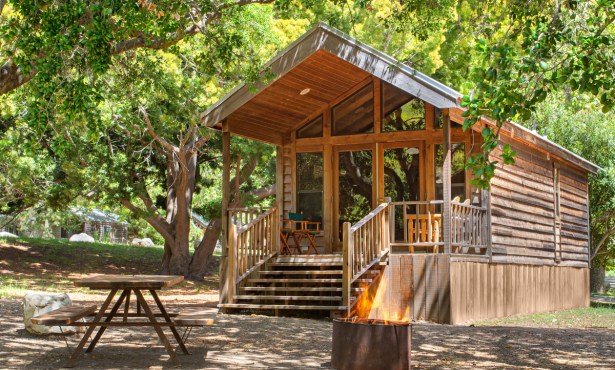The Lasting Effects of a Temporary Travel Ban
Fear and Uncertainty for Muslims Could Spell a Santa Barbara Brain Drain
Though the Trump administration conceded defeat of its temporary travel ban last Thursday, the haphazard rollout of the failed Executive Order is still wreaking havoc on the lives of Santa Barbara area Muslims. School plans and career goals have been derailed, and futures once filled with hope are now clouded with dread. Trump’s promise to rewrite and reenact the ban this week has only heightened the anxiety.
“It’s amazing to me how fast this happened,” said Hamid, a UCSB graduate student from Iran, of last month’s sudden announcement targeting nationals from seven Muslim-majority countries. “In just a few hours, Trump turned our lives upside down.”
Hamid studies fluid dynamics, specifically how oil behaves in water. He and fellow UCSB engineers familiar with Santa Barbara’s coastline and currents played critical roles in directing cleanup efforts after the Refugio Oil Spill. Hamid, who wished to keep his full name private, had planned to remain in the United States and start a career after he graduates this spring. Now he’s not sure what to do.
Hamid worries he’ll be blocked from entering the U.S. again if he returns to Iran to see his family. “I feel like a refugee who cannot go back to my home country,” he said. In the event the ban is replaced in the coming days, Hamid said he’ll move back to Iran and look for work there, as he couldn’t stand being permanently separated from his loved ones.
Maryam Rasekh, Hamid’s girlfriend, is an Iranian research scholar in UCSB’s engineering department with her eye on a career in telecommunications. She was recently offered a coveted PhD position and flew to Iran in November to apply for an F1 student visa. After a two-month vetting process, Rasekh was ecstatic to learn her visa was approved the morning of Friday, January 27. But later that day, before she could pick it up at the U.S. Embassy in Turkey, the White House announced the ban and officials refused to return her passport.
Like Hamid, Rasekh is now considering abandoning her life in the United States. The decision would be a painful one. She’s grown to love the country, said Rasekh. She enjoys reading contemporary American literature and exploring national parks. And she wants to work for an American company.
Employers across the U.S., including a number in Santa Barbara, are troubled by the chilling impacts Trump’s previous and forthcoming travel bans are having on their international workforces. “Yardi [Systems] is a multi-national company with employees from many countries,” said executive vice president Gordon Morrell in a previous interview with the Independent. “There is concern from every corner.”
Santa Barbara tech entrepreneur Jacques Habra said he’s worried about “the slippery slope effects, including the psychological effects, for talented engineers envisioning a future career in the U.S.” If those skilled workers are made to feel unwelcomed and forced to decide between a career and their families back home, “they may choose the UK, Canada, or Israel (just to name a few) as alternatives to the U.S.” Habra called the travel ban “an unsophisticated move” by a misguided administration.
The Independent spoke with four more Santa Barbara residents whose lives have taken sharp detours since the ban. Three of them requested anonymity for fear of reprisal from federal officials. One, a computer scientist, has lived in the U.S. for eight years. Her husband is a mechanical engineer, and their two-year-old daughter is an American citizen. The family may soon return to the Middle East given the new legal limbo of the husband’s green card status. “It would be easy for us to find a job in any country,” she said. “But we consider the USA our home.”
An Iranian national who’s lived in Santa Barbara for four years came to the country with his PhD in electrical engineering and earned another PhD from UCSB in computer engineering. He’s close to securing a faculty position at a top U.S. university, but now he’s struggling with the thought that “maybe enough is enough and maybe it is time to leave for good.” “But no matter what happens,” he went on, “whether I stay or am forced to leave, I should say that I haven’t felt anything from American people other than love, care, respect, and support, especially in these tough days ― I wish you all the best!”
Outside the tech and engineering realms, a Santa Barbara City College student from Syria is about to graduate with his Associate’s Degree in sports medicine. His family, who he wasn’t seen in many years, was filled with excitement and pride at the idea of attending his commencement. That reunion now seems impossible, and the 21-year-old is unsure when he’ll see his parents and siblings again. “It hurts,” he said.
Fateme Jalali wept as she talked about her parents and younger brother and sister back in Iran. “Imagine your child is in another country and you can’t see them,” she said. “Imagine you are not a bad person and you want the best for everybody, and this happens to you.” An interior designer with a degree from City College, Jalali and her husband, a cancer researcher also from Iran, are having difficult discussions about what’s next. “We’re thinking about saying goodbye,” she said.
Richard Appelbaum, the chair of UCSB’s Global Studies department, sees the travel ban as an “opening salvo that will result in increasing restrictiveness” for business and education. The STEM fields at UCSB ― and at every university in the U.S. ― are heavily populated by immigrants, he said. In some departments, the majority are immigrants. Blocking and losing overseas brainpower could be become “the new normal,” Appelbaum worried.
Appelbaum also called the ban inhumane and unnecessary. The impact to international relations has been disastrous. “Apart from pushing us deeper into being a pariah state,” he said, “it clearly feeds ISIS’s narrative, and will serve as an excellent recruitment tool.”
“I think Trump’s true goals are to keep everyone off balance with a bewildering release of executive orders designed to fan the flames of his base, discredit any press critical of what he is doing, establish Fox and Breitbart as the acceptable source of ‘facts,’ and move us increasingly towards fascism.”



